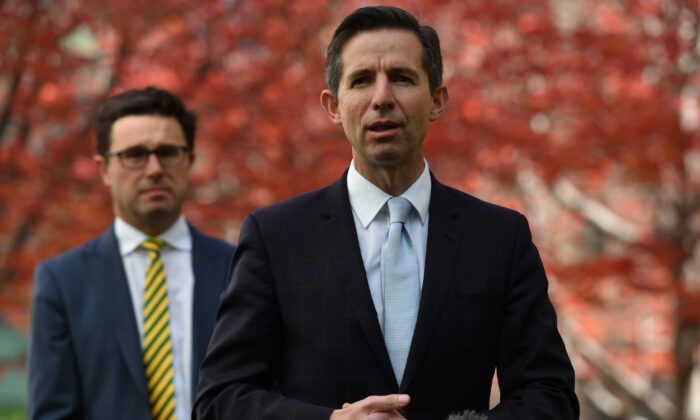Beijing’s Alleged Ban on Australian Coal Signals ‘Discriminatory Trade Practices’: Trade Minister
The Australian government is officially taking the Chinese regime to the World Trade Organisation (WTO) over its imposition of duties on barley after several months of Beijing refusing to engage in a dialogue to sort it out.
Federal Trade Minister Simon Birmingham said in a media release on Dec. 16 that Australia “stands ready” to defend the interests of its barley producers and all exporters.
“Whilst Australia respects China’s right, as with any nation, to undertake domestic investigations into anti-dumping matters, we do not agree with China’s decision to impose anti-dumping and countervailing duties on Australian barley,” Birmingham said. “Australia’s decision to take this step is consistent with our previous use of WTO processes. We have continued to raise our concerns with China on numerous occasions, both bilaterally and through the relevant WTO Committees.
He also said the government remains disappointed that China did not engage bilaterally and left them no choice but to call in an umpire.
The Chinese regime imposed an 80 percent tariff on barely imports which has been described as economic coercion, and an example of “lawfare“—a greyzone warfare tactic.
“The WTO dispute settlement system is designed to allow members to settle their differences over trade matters in a respectful manner. Australia sees this action as an appropriate use of an established system to resolve our differences,” Birmingham said.
Agriculture Minister and Deputy Leader of the Nationals David Littleproud said Australian barley growers deserved to have their case adjudicated by the independent umpire.
“Australia has always supported a rules-based trading system, we will always treat our trading partners fairly, but we will also stand up for the rights and interests of Australian exporters.
“We have previously taken action against Canada with respect to the treatment of our wine and achieved a positive outcome, and we are currently involved in action against India on sugar. I am confident that we will be able to deliver a good outcome for our grains industry.
“Australia has consistently stood firmly by our values and principles and our farmers at all times, and it is important that we continue to protect our sovereignty into the future,” Littleproud said.
Focus News: Australia Brings in WTO Umpire to Resolve China’s Trade Sanctions
Resources Minister Rejects Senator’s Call to Impose Counter Tariff on Chinese Iron Ore Exports
